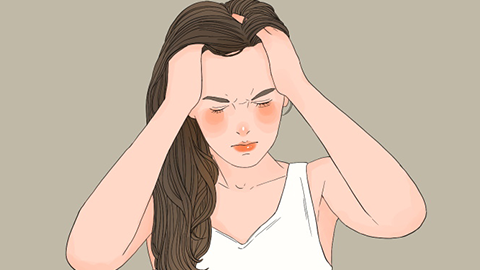What is somatization and how should it be managed?
In general, somatization may be caused by abnormal nervous regulation, psychological stress conversion, neurasthenia, anxiety disorder, depressive disorder, or other reasons. It is recommended to seek medical attention promptly, identify the underlying cause, and then improve symptoms under a doctor's guidance through non-pharmacological and pharmacological treatments. Specific analyses are as follows:

1. Abnormal nervous regulation: Autonomic nervous dysfunction converts psychological emotions into physical discomfort such as headache and chest tightness. Maintain regular作息 (daily routines) and avoid staying up late. Engage in 20 minutes of jogging or yoga daily to regulate nervous system function and alleviate somatic symptoms through exercise.
2. Psychological stress conversion: Prolonged stress that cannot be emotionally released manifests instead as physical pain, fatigue, and similar symptoms. Set aside half an hour each day to talk with family or friends, or write down your thoughts to manage stress. Seek professional psychological support when necessary.
3. Neurasthenia: Chronic mental tension leads to neuronal hyperexcitability and easy fatigue, triggering somatization symptoms accompanied by insomnia and memory decline. Patients should take medications such as Oryzanol tablets, Vitamin B1 tablets, and Diazepam tablets as prescribed, combined with pre-sleep meditation and relaxation techniques.
4. Anxiety disorder: Persistent anxiety causes overactivity of the autonomic nervous system, resulting in physical symptoms such as palpitations and gastrointestinal discomfort. Medications such as Paroxetine Hydrochloride tablets, Tandospirone Citrate capsules, and Lorazepam tablets should be taken as directed by a physician, along with cognitive behavioral therapy.
5. Depressive disorder: Low mood accompanied by somatic symptoms such as generalized body pain and decreased appetite, typically worse in the morning and improving by evening. Patients may take Sertraline Hydrochloride tablets, Fluoxetine Hydrochloride capsules, or Fluvoxamine Maleate tablets as prescribed, while maintaining moderate outdoor activities.
In daily life, avoid excessive focus on bodily sensations and minimize repetitive rumination about symptoms. Maintain a light and balanced diet, avoiding excessive intake of stimulants such as coffee and strong tea. Cultivate hobbies such as painting or gardening to divert attention and support physical and mental recovery.




